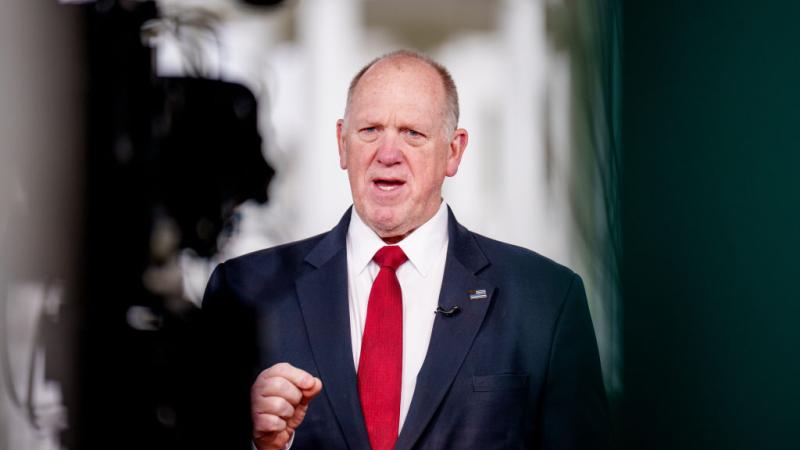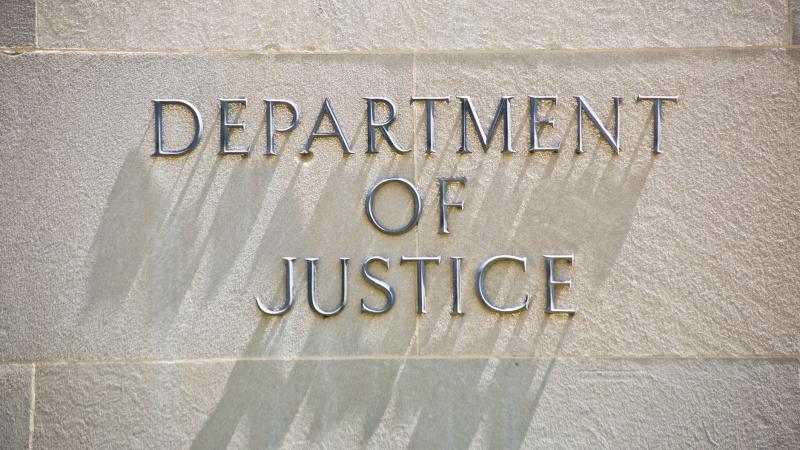Trump's pardons could bolster defense in state Jan. 6 cases under Supremacy Clause
Trump repeatedly pledged during his 2024 campaign to review cases and address perceived injustices in the prosecutions of January 6 defendants, whom he referred to as “hostages.” As many as 100 defendants have waited for more than four years to have their day in court.
President Donald Trump's latest pardons of Americans who contested the 2020 election or served as alternate electors take aim at state prosecutions usually outside the reach of federal clemency. However, the key, experts say, to this round of pardons, is to give defendants an argument under the Supremacy Clause. In other words, Trump supporters contesting a federal election outcome can’t be charged with state crimes if the federal government doesn't deem their conduct criminal.
“What's happening in the states revolves around a federally-protected constitutional right, and so it shouldn't be tried in the state context. So it's a way to make that point of superseding through the Supremacy Clause. It's a federal function that doesn't belong in state court,” Mike Howell, attorney and director of The Oversight Project, told Just The News.
Biden admin "creatively weaponized law enforcement" lawyer says
Howell also argued that a federal pardon pushes back on what he says were states acting at the behest of the federal government in prosecuting Trump’s enemies.
“Whether it's Nathan Wade at the White House, and he can't even remember his calls at the White House; whether it's Jocelyn Benson up in Michigan saying on TV that everyone was united and working against a common enemy [Trump]; all the different state AGs and the federal government is how the Biden administration creatively weaponized law enforcement as they used whatever function they thought could get at it the quickest.”
On Friday, Trump issued a sweeping proclamation that granted "full, complete, and unconditional" pardons to former New York City Mayor Rudy Giuliani, ex-White House Chief of Staff Mark Meadows, attorneys Sidney Powell and John Eastman, former Justice Department official Jeffrey Clark, and over 70 additional allies who participated in challenges to the 2020 election outcome.
Former Wisconsin judge Jim Troupis, who served as a lead Trump campaign attorney in 2020 and coordinated the state’s alternate electors slate, was granted a full federal pardon by Trump, which shields him from any federal prosecution tied to those efforts. However, it leaves intact his pending state felony forgery charges in Wisconsin. Troupis spoke to Just The News about the constitutionality of the charges and the precedent that already exists: "There's a fundamental issue here that this Justice Department is coming to grips with, which is federal preemption, or supremacy, in 2020 — what happened was we simply recommended that the president follow the rules that had been established for literally hundreds of years in the use of alternate delegates. It's a part of the statutory structure. It's part of the United States Constitution."
Also speaking to Howell's concern about a concerted, coordinated federal-to-state pipeline for many of these cases, Troupis said, "There is so much evidence of coordinated effort. Everyone knows that the January 6 Committee was all a part of a national plan. Everyone knows that Joe Biden and his supporters pushed [Wisconsin Attorney General] Josh Kaul to do this. These are open secrets in Washington."
Troupis expressed gratitude for the pardon but also made it clear that more must be done. "It's time for the investigation to get truly serious and go after these people. It was a coordinated effort, as Ed Martin has said in his memo today, to deny the right of the citizens of this country to petition the government in a presidential election."
Trump: "A profound national injustice"
The pardons cover all federal crimes tied to their efforts to highlight or investigate election fraud allegations and their roles in assembling alternate electoral slates after Trump’s defeat to former President Joe Biden. In the proclamation, Trump described the move as a step to “correct a profound national injustice inflicted on the American people after the 2020 Presidential Election” and to advance “the ongoing healing of our nation.” The pardons were officially revealed by U.S. Pardon Attorney Ed Martin via social media on November 9.
Another concern for many of these defendants is the financial ruin or near-ruin they endured when defending themselves. In what could prove to be a surprising quest to bring recompense for these defendants, Howell said that these pardons also raise the potential that those individuals who have been financially drained could be eligible for restitution.














